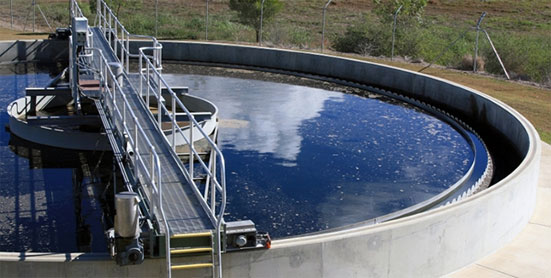You may have encountered unpleasant scents when nearby a wastewater treatment facility. Organic compounds in the water are what give off the unpleasant scents that come from these facilities. Diverse chemicals are employed as wastewater deodorizers to eliminate this stench. The common varieties of wastewater deodorizers, as well as their applications and mechanisms of operation, are covered in this article.
Introduce
The process of wastewater treatment is crucial to ensuring that the water we use is secure for both the environment and for humans. The procedure can, however, leave behind an unpleasant smell that can bother neighbors. Wastewater deodorizers are employed as a defense against this. In order to eliminate odor-producing substances in water, these chemicals were particularly created.
What are popular deodorizers for wastewater?
Traditional wastewater deodorizers are chemical substances created especially to eliminate odor-producing substances found in wastewater. Wastewater deodorizers come in a variety of forms, each with unique qualities and advantages. The following are a few of the most popular kinds of wastewater deodorizers:
1. Chlorine
Chlorine is a potent oxidizing chemical frequently used to deodorize wastewater. Sulfides and mercaptans among many other odor-causing substances can be effectively neutralized by it. Chlorine is a preferred chemical for wastewater treatment facilities since it is also useful for disinfecting water.
2. Hydrogen Peroxide
Another widely used deodorizer for wastewater is hydrogen peroxide. It is a potent oxidizing agent that effectively eliminates a wide range of odor-causing substances. Hydrogen peroxide has deodorizing qualities in addition to its capacity to destroy viruses and germs.
3. Purple Pill
Strong oxidizing compounds like potassium permanganate are frequently employed as sewage deodorizers. Many other odor-causing substances, such as hydrogen sulfide and mercaptans, can be effectively neutralized by it. In wastewater treatment facilities, potassium permanganate is frequently used because it is efficient in removing color from water.
4. Activated carbon
An oxygen-treated form of carbon known as "activated carbon" has had its carbon atoms' microscopic gaps multiplied by millions. Carbon can absorb and capture odor-producing substances thanks to these holes. To increase the efficiency of other wastewater deodorizers, activated carbon is frequently added to the mix.
5. Iron's Salt
As wastewater deodorizers, iron salts like ferrous sulfate and ferric chloride are frequently utilized. Hydrogen sulfide and mercaptans are only two of the many odor-causing substances that these salts are efficient at neutralizing. Using iron salts to remove phosphorus from water can help stop the formation of algae.

How do typical wastewater deodorizers function?
Traditional wastewater deodorizers function by dissolving odor-producing substances in the water. Oxidation, a process, is used to do this. These chemicals react with odor-producing molecules and transform them into innocuous substances when they come into touch with them.
For instance, when chlorine and hydrogen sulfide combine, sulfuric acid and water are produced. Carbon dioxide and water are produced when hydrogen peroxide combines with organic substances. The oxidation of organic molecules by potassium permanganate produces carbon dioxide and water. Odor-producing substances are successfully removed from the water by activated charcoal, which absorbs them.
Advantages of Regular Wastewater Deodorizers
1. Decrease odor
Deodorizers for wastewater primarily serve to lessen the scents that are created by wastewater. In order to prevent foul odors from affecting the environment, this is crucial.
2. Enhance public health
Deodorizers for wastewater are essential for enhancing public health. Wastewater deodorizers assist in ensuring that the water released back into the environment is secure for people and animals by removing odor-causing substances and eliminating dangerous bacteria and viruses.
3. It's economical
The fact that many wastewater deodorizers are inexpensive makes them a popular option for wastewater treatment facilities. Wastewater treatment facilities can lower the cost of wastewater treatment while maintaining the safety and absence of odor-causing substances in the water by utilizing these chemicals.
4. Simple to use
The usage of wastewater deodorizers is very simple. Without specific equipment or further expertise, the majority of chemicals may be put straight to water.